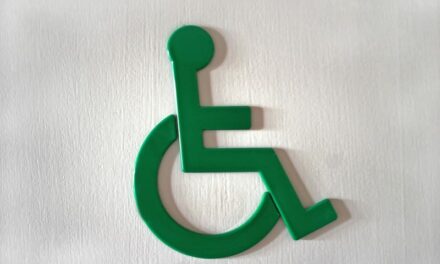As part of the Biden-Harris Administration’s continued commitment to improve the safety and quality of care for nursing home residents, the Centers for Medicare & Medicaid Services (CMS) is increasing scrutiny and oversight over the country’s poorest-performing nursing homes in an effort to immediately improve the care they deliver. In a series of revisions to the Special Focus Facility (SFF) Program, CMS will toughen requirements for completion of the program and increase enforcement actions for facilities that fail to demonstrate improvement. CMS is also calling on states to consider a facility’s staffing level in determining which facilities enter the SFF Program.
Today’s announcement is part of a series of new actions the Biden-Harris Administration is taking to increase accountability of bad actors in the nursing home industry, improve the quality of nursing homes and make them safer. Today’s action fulfills a promise laid out in President Biden’s State of the Union Action Plan for Protecting Seniors by Improving Safety and Quality of Care in the Nation’s Nursing Homes to overhaul the SFF Program to strengthen scrutiny over more poor-performing nursing homes, improve care for the affected residents more quickly, and better hold facilities accountable for improper and unsafe care.
“Let us be clear: we are cracking down on enforcement of our nation’s poorest-performing nursing homes,” said HHS Secretary Xavier Becerra. “As President Biden directed, we are increasing scrutiny and taking aggressive action to ensure everyone living in nursing homes gets the high-quality care they deserve. We are demanding better, because our seniors deserve better.”
“People in this country’s nursing homes deserve access to safe and high-quality care, and facilities that aren’t providing that level of service need to improve their performance or face the consequences,” said CMS Administrator Chiquita Brooks-LaSure. “Poor-performing nursing homes have the opportunity to improve, but if they fail to do so, the changes we are making to CMS’ Special Focus Facilities Program will hold these facilities accountable for the health and safety of their residents.”
CMS is announcing the following revisions to the SFF Program:
- Making requirements tougher: CMS is strengthening the criteria for successful completion of the SFF Program by adding a threshold that prevents a facility from exiting based on the total number of deficiencies cited—no more “graduating” from the program’s enhanced scrutiny without demonstrating systemic improvements in quality.
- Terminating federal funding for facilities that don’t improve: CMS is considering all facilities cited with Immediate Jeopardy deficiencies on any two surveys while in the SFF Program for discretionary termination from the Medicare and/or Medicaid programs.
- Increasing enforcement actions: CMS is imposing more severe, escalating enforcement remedies for SFF Program facilities that have continued noncompliance and little or no demonstrated effort to improve performance.
- Incentivizing sustainable improvements: CMS is extending the monitoring period and maintaining readiness to impose progressively severe enforcement actions against nursing homes whose performance declines after graduation from the SFF Program.
In another revision to the SFF Program, CMS is advising State Survey Agencies to consider a facility’s staffing level, in addition to its compliance history, when selecting candidates from their state for inclusion into the SFF Program. This recommendation is the latest action by CMS to focus on the importance of staffing to quality care, another key component of President Biden’s Action Plan for Nursing Homes.
The changes CMS is implementing today are designed to incentivize facilities to quickly improve their quality and safety performance, allow the SFF Program to scrutinize more facilities over time by moving facilities through the Program more quickly, and promote sustainability of facilities’ improvements to ensure they do not regress post-program.
These changes to the SFF Program will help drive improvements to resident care in affected facilities. While the revised SFF Program increases scrutiny and enforcement consequences for poor-performing nursing homes, CMS is also emphasizing a number of efforts facilities can take to support quality improvement, including engaging the CMS Quality Improvement Organizations and hiring external consultants to support performance improvement. While in the SFF program, CMS is encouraging facilities to make good-faith efforts (and provide evidence of these efforts) to improve quality and measurable changes, such as changes in staffing, leadership, or increased overall staffing. These efforts will be considered when evaluating potential enforcement actions for noncompliance. For example, SFFs with noncompliance and no evidence of good-efforts to improve quality, will be subject to more severe enforcement sanctions, such as higher penalties, or suspended or termination of federal funding.
Currently, 88 nursing homes participate in the SFF Program, approximately 0.5% of all nursing homes in the country.
While the SFF Program has helped many nursing homes improve their compliance and quality, some facilities fail to reach the standards necessary to graduate from the Program. Additionally, some facilities demonstrate improvement from the Program, only to regress and fail to sustain their improvements and compliance.
Since its inception, the SFF Program has identified the poorest-performing nursing homes in the country for increased scrutiny to rapidly make and sustain improvements in the quality of care they deliver. These facilities continue to be inspected roughly twice as often as all other nursing homes ̶ no less than once every six months ̶ and face increasingly severe enforcement actions if improvement is not demonstrated. Facilities must pass two consecutive inspections to complete the Program. The changes enhance the existing program to drive rapid and sustained quality, and seek to greater protect the health and safety of nursing home residents in these facilities.
[Source: CMS News]





